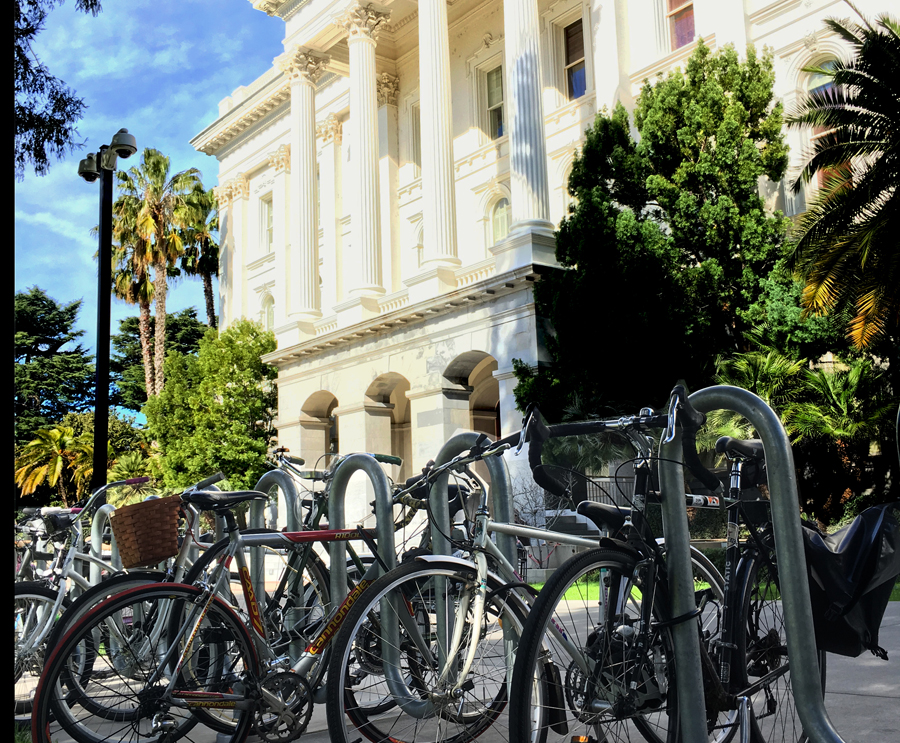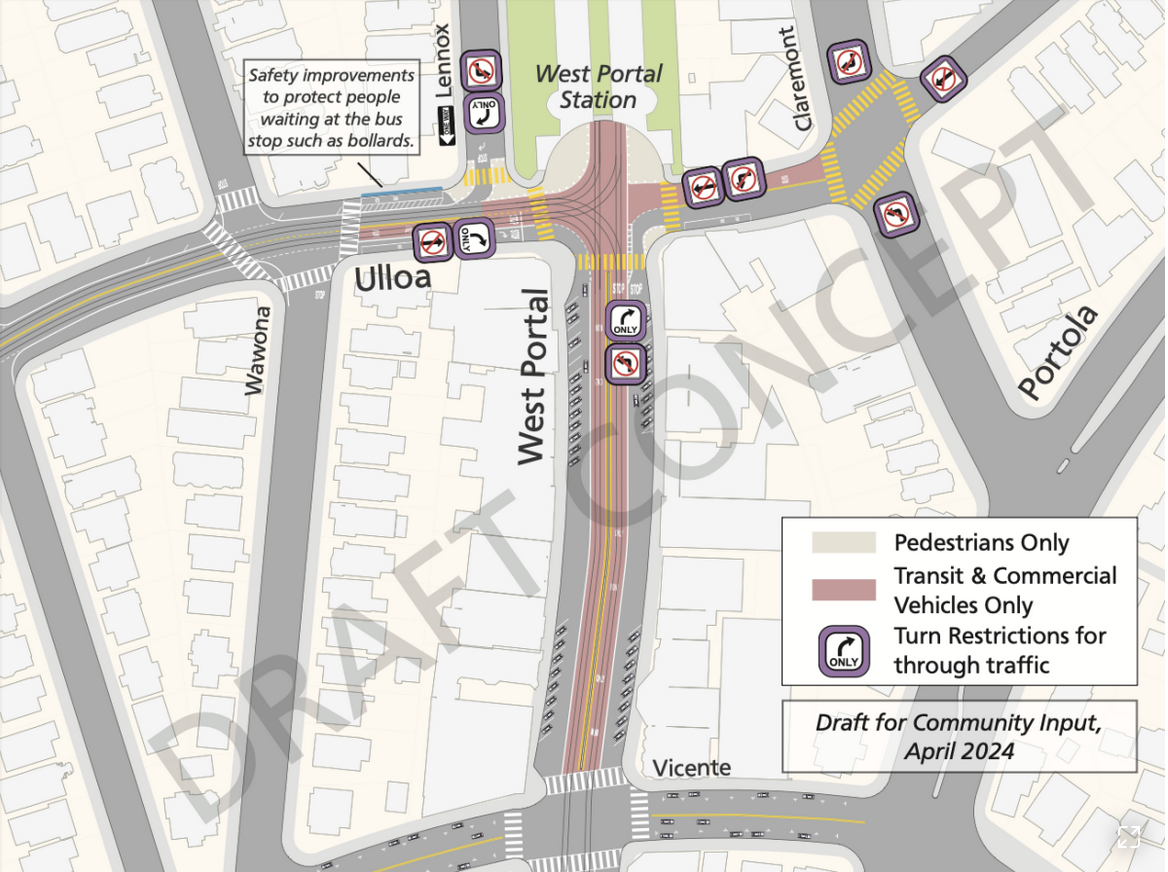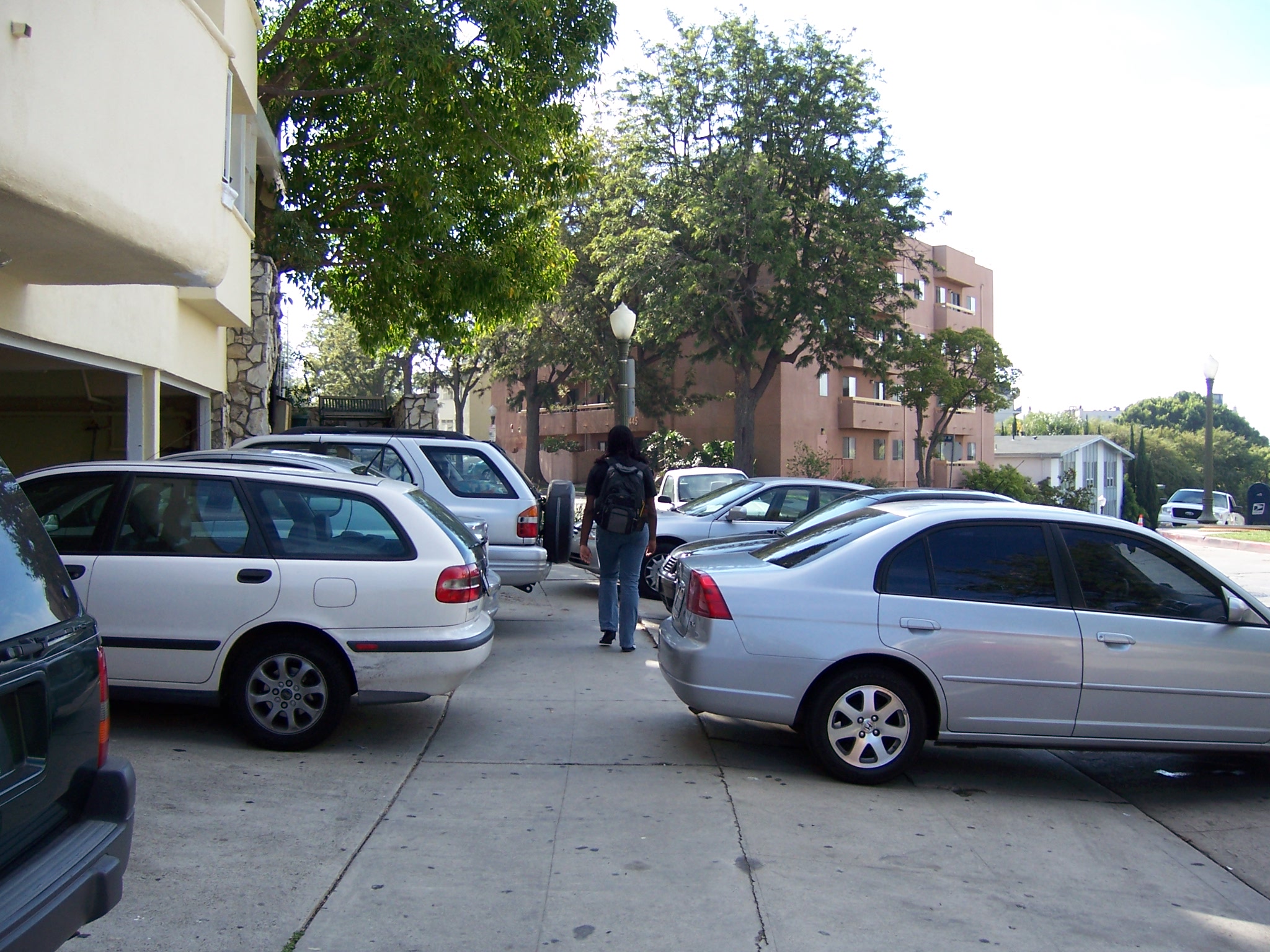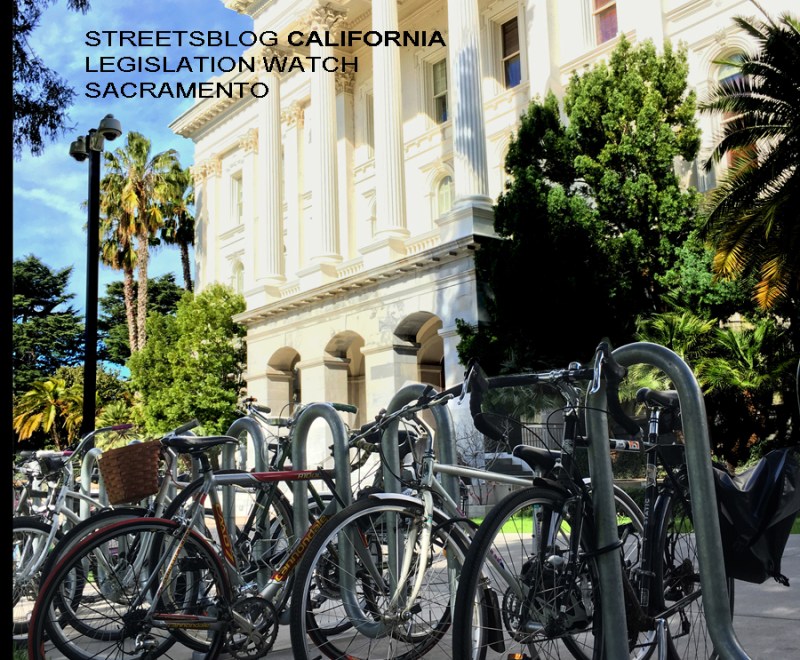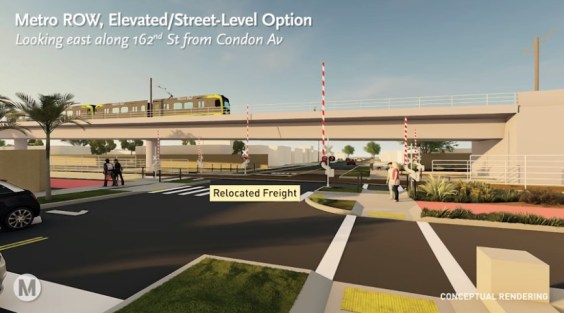The California legislative session has begun in earnest, and it's time to take a look at some of the bills that have been introduced for this year. Below is a roundup of current bills concerned with bicycling, walking, safety, transportation, and equity.
Streetsblog has already covered some of these bills, and will certainly do so again.
- The transportation funding bill is a big one, and the first one out of the gate, having already passed several committee votes. Our analysis here discusses some of the problems with its approach to funding.
- Under A.B. 1103, bike riders would be allowed to treat stop signs as yield signs.
- A.B. 694 aims to clarify the rules around when bikes have to stick to the right side of the road, specifically what exceptions allow them to move to the left.
- A.B. 342 would create a five-year pilot program allowing San Jose and San Francisco to use cameras to enforce speed limits. There is very little funding available to enforce what speed limits cities have, so any way to get people to slow down would help improve safety for everyone else.
- S.B. 760, sponsored by Safe Routes to Schools, the California Bicycle Coalition, California Walks, and the American Heart Association, is the bill from Senator Scott Wiener (D-San Francisco) that would require state highway projects to prioritize active transportation modes like walking and bicycling on state-owned roads that cut through cities. That includes roads like Van Ness Ave. in San Francisco, San Pablo Ave. and Ashby Ave. in Berkeley, and Santa Monica Blvd. and Hawthorne Blvd. in Los Angeles. That could mean no more excuses like "we can't put in a bike lane because Caltrans would never allow it."
- Assemblymember Chris Holden (D-Pasadena) has rewritten and reintroduced the student transit pass bill that faltered last year. A.B. 17 aims to create a state program that would make free and reduced-fare transit passes available to students, from middle school to college, to help them get where they need to get as well as to train future transit riders.
- A.B. 390 is another pedestrian safety bill, or perhaps more accurately a pedestrian fairness bill. Pedestrian countdown signals, which were invented after current crossing laws were written, give people who want to cross important information about whether they have time to do so or not. But some jurisdictions, notably downtown L.A., have taken a hard line on the matter, claiming that the law states that pedestrians cannot cross once a pedestrian signal begins flashing, whether it's flashing a number or a hand or a “Don't Walk” signal. This bill, from Miguel Santiago (D-Los Angeles), is a no-nonsense fix for a dumb interpretation of an outdated law. It should give the LAPD reason to focus their enforcement efforts on more important things.
- S.B. 672 from Jean Fuller (R-Bakersfield) simply extends an existing requirement that any traffic signals that are “traffic actuated”—that is, that only change when someone is waiting for the signal—be able to detect bicycles and motorcycles. The current requirement is set to expire next January, and this would make it permanent, as it should be.
- S.B. 702 would expand an existing bike-share program for state employees to all state employees throughout California for use during the workday. The bill, from new Senator Henry Stern (D-Canoga Park), is an excellent—and very simple—way to help state employees contribute to California's energy and greenhouse gas reduction efforts.
- The California Transportation Commission makes state-level decisions about which transportation projects get funding. Commissioners are appointed by the governor, but there are few requirements about their level of expertise or knowledge. A.B. 179 aims to make this important commission more representative of and more accountable to the state population. The bill would require that specific appointees have experience in sustainable transportation, transit, the public health effects of transportation, climate change mitigation, and air pollution. It would further require that two commissioners have experience working in or be members of communities that are burdened by high levels of pollution. It also calls for the creation of an Environmental Justice Advisory Committee to advise the commission, something that has proven to be useful for the Air Resources Board. This bill, from freshman Assemblymember Sabrina Cervantes (D-Corona), could actually help shift the state away from its old ways of thinking about transportation funding, and learn to focus on moving people rather than cars.
- Another bill that aims to increase the diversity of views represented in transportation funding decisions is A.B. 1640 from Assemblymember Eduardo Garcia (D-Coachella). This bill would require regional transportation planning agencies to set aside at least a quarter of the money they receive under the state transportation improvement process for projects “that provide direct, meaningful, and assured benefits to low-income individuals. . . or to riders of transit service that connects low-income residents to critical amenities and services.” It also requires the state to help low-income residents participate in the development of guidelines for how to select those projects.
- One more bill along similar lines is S.B. 263. From Senator Connie Leyva (D-Chino), the bill calls for the creation of a technical assistance program to help local community organizations, cities, and small businesses apply for and benefit from funding from the state's cap-and-trade program.
It's early days yet, and few of these bills have had a hearing, let alone faced a vote. They have two years to get through the legislative process, and anything can happen during that time. But one can dream.
Stay tuned.
